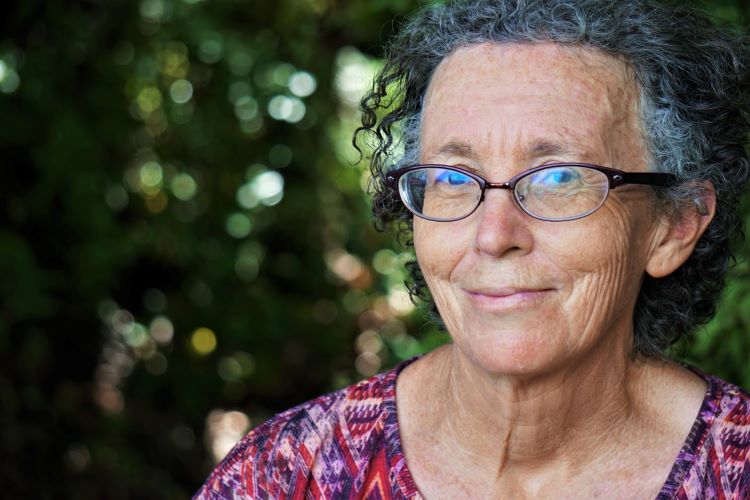Drug & Alcohol Rehab in Worksop
Thinking about addiction rehab can be the source of a lot of anxiety and worry.
Individuals are often uncertain about what the process involves, and this can deter them from starting much-needed treatment.
Drug and alcohol rehab in Worksop is a very simple process which individuals have no need to fear.
Its steps are simple in nature and work together to create a natural and logical progression towards recovery.
Starting with detox

When an addiction involves a physical dependence, rehab must begin with detox.
This treatment focuses on the body and its relationship with a substance, seeking to reduce the reliance it has formed.
By slowly weaning an individual from their substance use, detox allows for their body to gradually develop a tolerance for being sober.
Suddenly quitting would trigger immense imbalance and withdrawal, but this approach reduces this risk significantly.
At Rehab Recovery, we offer free advice from a team of non-judgemental professionals, many of whom are in recovery and understand how hard it can be to change your relationship with addiction.
For more information about rehab in Worksop, simply reach out to our 24/7, confidential hotline on 0800 088 66 86.
Progressing with therapy

Not every addiction will require detox, but that is not true for therapy. Once a physical dependence has been treated, or if an individual never had one, the biggest priority of drug and alcohol rehab in Worksop becomes psychological and emotional dependency.
To address the thoughts and emotions which initially triggered and continue to fuel addictive behaviours, therapy is required.
This treatment involves an individual working with an expert to identify and healthily manage the issues at the heart of their destructive habits.
Addictive triggers can range from thoughts and feelings to familial relationships and social anxiety.
For this reason, therapy can adapt itself and shift its structure in order to help an individual regardless of what they are struggling with.
Concluding with relapse prevention

With the body and mind cleansed of their attachment to addictive behaviour, rehab approaches its conclusion.
However, before an individual can return home they must undergo the final stage of treatment: relapse prevention.
Achieving physical and mental sobriety is a massive achievement, but these things will be under threat after rehab if an individual does not know how to protect them. In relapse prevention, skills and techniques are learned to help with this.
Primarily, treatment will focus on ways of managing the triggers identified during therapy. They can also work to promote ways of managing cravings.
For example, HALT is a technique which reminds individuals to question their cravings.
Instead of needing to use a substance, could they be hungry, angry, lonely, or tired? This technique helps avoid needless relapse and protect sobriety.
At Rehab Recovery, we offer free advice from a team of non-judgemental professionals, many of whom are in recovery and understand how hard it can be to change your relationship with addiction.
For more information about rehab in Worksop, simply reach out to our 24/7, confidential hotline on 0800 088 66 86.
The medical importance of detox

Detox is an important stage of drug and alcohol rehab in Worksop. It is the most challenging stage of recovery for the body, and it is therefore of particular medical significance compared to therapy and relapse prevention.
Unlike its fellow treatments, detox can cause serious harm if mishandled. Alcohol detox in particular can pose a threat to life, and so it is essential that this process happen within the safety of a rehab facility.
Doctors and addiction experts oversee the detox process and make sure that it is paced and carried out in a manner which the body can deal with.
In addition, these professionals can prescribe medications to combat withdrawal symptoms should they arise.
Benzodiazepines are the preferred medication in this area. They can be provided to protect wellbeing and keep a detox on-track.
Medical supervision is also important here as it ensures that an individual does not forge a new dependency on these drugs.
What kinds of therapy are accessible in rehab?

Therapy is an incredibly malleable treatment. It can adjust its shape and focus in order to accommodate for the wide range of triggers that can be responsible for individuals’ addictive habits. Below are some of the most common available.
1. Cognitive Behavioural Therapy (CBT)
Focusing on thought patterns and ways of perceiving the world, CBT helps individuals identify the ways in which they think themselves into reinforcing addictive behaviours.
It often looks to disrupt and replace negative thoughts with those which are more realistic.
2. Dialectical Behavioural therapy (DBT)
Emotions are intense drivers of action, and addiction can often be the result of powerful feelings going unchecked.
Shame, regret, anger – these feelings can be difficult to deal with, but DBT helps individuals find healthier coping mechanisms for them.
3. Group therapy
Working with others undergoing addiction rehab, individuals can feel supported and heard by those who have experienced similar difficulties.
Group therapy also allows those just starting treatment to see the benefits of rehab for themselves.
4. Family therapy
In the instance that family relationships push individuals towards substance abuse, family therapy can bring relatives into treatment sessions.
Discussions can then be had to identify the source of tensions and work through them.
5. Holistic therapy
As well as addressing specific triggers, therapy can approach addiction via the whole individual.
By boosting health and wellbeing, individuals can be severed from their addictive tendencies and given new independence and happiness.
How much does drug and alcohol rehab in Worksop cost?

It can be concerning at first to consider the price of drug and alcohol rehab in Worksop.
Paying for treatment might not seem possible, but it is important to remember that there are sources of financial support out there.
On average, a week of addiction treatment costs around £14,000 in the UK. Lower prices can be found within a range of £1,000 to £10,000, and more luxurious options are available should they be desired, rising up to about £70,000.
For those without savings to rely on, it might be useful to see what funds are accessible via local councils.
Many can offer grants to support those who require addiction support but cannot afford it by themselves.
At Rehab Recovery, we offer free advice from a team of non-judgemental professionals, many of whom are in recovery and understand how hard it can be to change your relationship with addiction.
For more information, simply reach out to our 24/7, confidential hotline on 0800 088 66 86.
Does rehab take months to complete?

As well as money, individuals considering drug and alcohol rehab in Worksop may have reservations about how long the process will take.
Taking time away from work and family for a long period of time might seem at first to be unrealistic, but it will be necessary.
Those with worries can rest assured that rehab does not require months to complete. Instead, it lasts on average for about 28 days.
Detox takes just over a week, and therapy and relapse prevention require 3 weeks in order to be effective.
The duration of rehab can take longer in some situations, but this is usually due to one of a few things occurring.
Those who take longer to progress through rehab tend to have more severe conditions, a pre-existing health condition, or an unwillingness to cooperate.
What is dual diagnosis and why is it important?

Dual diagnosis refers to the identification of a mental health condition existing alongside addiction.
Addiction can have intrinsic connections with anxiety, bipolar, and depression, and it very often develops alongside these kinds of conditions.
Addiction can sometimes trigger these conditions as well. Drugs and alcohol can manipulate thoughts and emotions, leading individuals to experience more intense emotions and unstable perceptions of the world.
More often, however, addiction is the result of poor mental health. Conditions like anxiety prompt symptoms which individuals are motivated to dampen.
The effects of drugs and alcohol achieve this, creating an incentive to continue using them.
But why is dual diagnosis important? Simply, dual diagnosis enables therapy to sufficiently support individuals.
By identifying a mental health condition, sessions can prioritise treating its connection to addiction and providing suitable coping mechanisms.
At Rehab Recovery, we offer free advice from a team of non-judgemental professionals, many of whom are in recovery and understand how hard it can be to change your relationship with addiction.
For more information about rehab in Worksop, simply reach out to our 24/7, confidential hotline on 0800 088 66 86.
Why does addiction need to be treated as soon as possible?

You might identify an addiction and wonder whether you need to seek drug and alcohol rehab in Worksop immediately.
You might have a lot going on, or maybe you don’t have the funds necessary to pay for treatment yet, so why can’t you wait a little while?
Addiction is not a condition which sits still. Those who misuse substances will develop greater and greater tolerances for them, resulting in them needing to gradually consume more over time.
As this happens, their body and mind will come to rely on higher quantities.
Their condition, therefore, will become stronger with each week that it goes untreated, resulting in their dependency consistently getting deeper and their cravings becoming more intense.
Not only that, but the greater the change in the body, the harder it will be to detox.
The sooner an addiction is treated, therefore, the better. Early detox will mean the body is not having to change its chemistry so dramatically, and breaking addictive habits through therapy will be much faster if those routines have not had time to settle.
Delaying treatment may seem sensible, but denial usually plays a role in this perception [1].
Pushing back the recovery journey only makes it longer and tougher, and increases the risk of harm being done in the meantime.
Don’t take the risk, and seek help as soon as you can!
Aftercare: the importance of ongoing recovery support

At the end of drug and alcohol rehab in Worksop, individuals return home and resume their regular routines.
This is a huge milestone to reach on the recovery journey, but returning home also comes with a whole new set of challenges which individuals must face.
Relapse becomes a big threat during this period. Regardless of how well an individual has done within rehab, re-engaging with triggers increases the risk of them experiencing mental and physical relapse [2]. As a result, ongoing addiction support is a necessity.
Aftercare services are abundantly available and very diverse. Individuals can access therapy to continue their fight against addictive triggers, or they can receive physical check-ups to monitor and maintain their body’s health and functionality.
These sessions can also do things that were not available in rehab. For example, Alcoholics Anonymous sessions can bring recovering alcoholics together to speak about the specific challenges and triggers which they have experienced, and work together to overcome them.
At Rehab Recovery, we offer free advice from a team of non-judgemental professionals, many of whom are in recovery and understand how hard it can be to change your relationship with addiction.
For more information, simply reach out to our 24/7, confidential hotline on 0800 088 66 86.
How do I find the right rehab in Worksop for me?

Deciding to start drug and alcohol rehab in Worksop is a huge moment in any individual’s recovery journey.
However, what follows is the decision of where to seek out this support, and it is by no means an easy one to make.
Different facilities will offer different approaches to the recovery process and slightly different treatments. How, then, are you to know which one to trust with your addiction recovery?
Think about what support you need
Everyone will be different, and each addiction will develop in its own way as a result of different triggers.
As a result, individuals will each require an approach to treatment which addresses their personal experience of substance abuse.
To optimise the effectiveness of treatment, it can help to find out what support you would benefit from.
Speaking with a doctor or GP can help with this, and from there you can find out which facilities offer the treatments you need in order to recover.
Consult your budget

Money plays a big factor in which rehab programme an individual can select. Every facility will charge its own price, so consulting your available budget can be the quickest way to narrow your options down to a select few.
As referenced earlier, you can also look into council funding as a means of paying for rehab.
Look into how much money you are able to access and consider which facilities fall within that budget.
Research what others have had to say
Websites and information leaflets can only communicate so much information about a rehab facility.
Often, what matters most is how a programme makes an individual feel and whether they enjoy their experience.
This sort of information is available in online reviews from previous patients. Take a look at these and pay attention to what they say about the things that matter to you, whether that is atmosphere, accommodation, or catering. Use this to then reduce your options.
At Rehab Recovery, we offer free advice from a team of non-judgemental professionals, many of whom are in recovery and understand how hard it can be to change your relationship with addiction.
For more information about rehab in Worksop, simply reach out to our 24/7, confidential hotline on 0800 088 66 86.
Getting support from Rehab Recovery

Starting your recovery journey can feel impossible, and you might have a lot of questions about addiction, how it is treated, and what the future might hold.
It’s incredibly common to feel uncertainty or anxiety at this early stage, but there is no need to fear.
At Rehab Recovery, we understand how hard it is to tackle addiction. Looking for treatment is a big step, and that’s why we are here to try and make things as easy as possible for you.
Whether you are unsure of what options are available in Worksop, or you simply want someone to explain the facts of addiction, our helpful team are on hand.
At Rehab Recovery, we offer free advice from a team of non-judgemental professionals, many of whom are in recovery and understand how hard it can be to change your relationship with addiction.
For more information about rehab in Worksop, simply reach out to our 24/7, confidential hotline on 0800 088 66 86.

References
[1] http://pure-oai.bham.ac.uk/ws/files/25519189/DENIAL_PICKARD_M_L_FINAL_PRE_PROOF.pdf
[2] https://www.ncbi.nlm.nih.gov/pmc/articles/PMC4553654/


